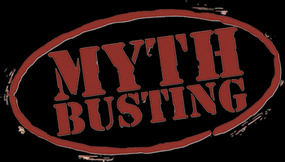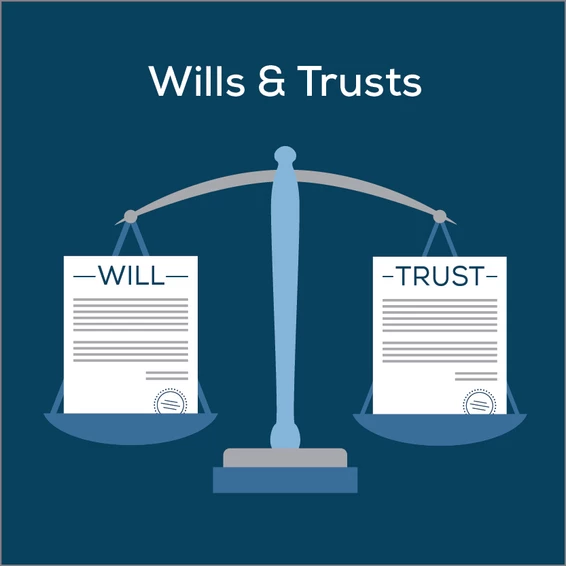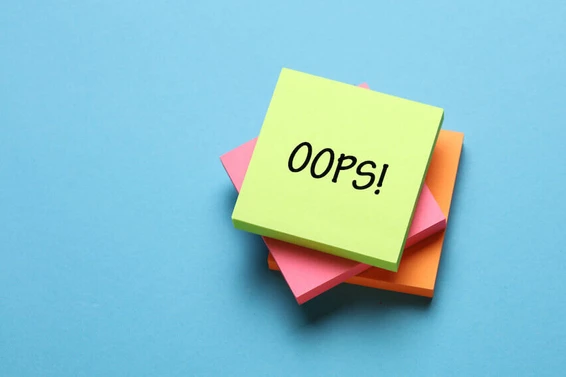
4 Myths About Estate Planning Busted
July 10, 2019
Who Needs a Will or a Trust?
July 10, 2019
Estate Planning Mistake #1: No Disability Plan Often if people have not created a formal estate plan and do ad hoc planning, they will have designated beneficiaries on accounts and made plans for what will happen with their property if they die, but often incapacity planning is overlooked. If incapacity planning is overlooked it can lead to real problems. For instance, my grandfather had alzheimer's before his death. One day he wandered away from home and my father could not find him for days. He was at a hospital but the hospital would not disclose whether they had him at their facility because my father did not have a HIPAA waiver (a document that allows others access to medical information). Finally, someone took pity on my dad and told him, "I can't say where he is, (wink, nod) but if I were you, I would look at XYZ hospital." This kind of problem along with many other even more serious ones can be avoided with the proper disability planning.
Estate Planning Mistake #2: No Will or Trust A will is a letter to the probate judge telling him or her how you want your assets distributed. It does not avoid probate court, but can direct the ultimate distribution. In California, most people want to avoid the court system altogether because it is cumbersome. I hear there are other states, in the New England area, where a will is sufficient. Suffice it to say, you need some type of estate plan, whether it is a trust (here in California) or a will in another state.
Estate Planning Mistake #3: Fail to plan for "Digital Assets" When most people hear the term digital assets, they think of binary trading or Bitcoin, but the most common digital asset that most of us have is our email account. This "asset" has become more and more important as people are shifting away from billing in physical mail toward "paperless billing" in their email accounts. We used to be able to direct successor trustees and executors to just redirect the mail to them and see what came for the following month. Typically, from this process we could know everything the decedent owed and owned. Now, if a trustee or executor does not know the decedent's email passwords, they may be completely unaware of large bills or assets. This is why it is important to put language allowing your fiduciaries the ability to access these accounts and, possibly, to leave a list of usernames and passwords for them to use to access this information.
Estate Planning Mistake #4: No Beneficiary Protection The majority of plans that I review leave assets to beneficiaries outright when they are over a certain age. There are terms that you can add for your beneficiaries that will protect assets from divorce, lawsuits, or bankruptcies and will not take away control from those eventual beneficiaries (unless this is needed as well). This is not something the beneficiary can do for themselves, this must be set up by the original owner (also known as a "Grantor").
Estate Planning Mistake #5: No life What I mean by this is that many fail to inject themselves into their estate plans. The plans often have no personality. This is your final love message to your loved ones, you should give it some personality. If you gave to certain causes in your lifetime, your plan should do so after you pass. If you value a formal education, you should include clauses in your plan that will encourage your beneficiaries to achieve higher levels of education.
Estate Planning Mistake #6: No IRA or 401(k) planning Retirement accounts are a tricky subject because the taxes must be paid on these assets at some point because you deferred these taxes while you were living. Often people have not adequately planned for these assets triggering all of the taxes to come due at the same time. This often results in the beneficiary paying a lot more in taxes because they are pushed into higher tax brackets as a result of getting the assets in a lump sum. There is, however, a way to plan for these assets so that you can continue to defer the taxes.
Estate Planning Mistake #7: Failing to document The hardest thing for a successor trustee or executor to do is determine everything that you own and all of your bills. If you keep good up-to-date records about all of your debts and assets, the job of administering your estate will be so much easier than it would have been. Your plan should make a place for you to document all of your assets.
Estate Planning Mistake #8: Surviving Spouse Remarriage Protection Many don't plan on getting remarried after their long time spouse passes away, but it happens more often than you think. It is important that your estate plan considers this possibility. There are ways to create an estate plan that requires that pre-nuptial agreements be signed by the new spouse.
Estate Planning Mistake #9: Sentimental Treasures and Family Heirlooms The law is pretty good at evenly dividing dollar amounts. Often fights happen less over how much money each beneficiary receives because it is spelled out in the plan in black and white. The sentimental items are less likely to be planned out in detail. I often recommend that my clients have a meeting with their potential beneficiaries about what they would want to receive as a gift (as far as the stuff goes). It is much easier for a parent or older loved one to sort out arguments over the sentimental stuff than to let the beneficiaries duke it out when the loved one has passed away.
Estate Planning Mistake #10: Funding The process of transferring assets into your trust is a vital part of a comprehensive estate plan. The process of transferring assets to fit your estate plan is known as funding. This can sometimes be the most time consuming part of the plan, but it is vital that it is completed. Most plans that I help someone administer after a loved one has passed is either not funded or underfunded, with many assets going in different directions with outdated beneficiary designations, etc. It is important to make sure that your plan is cohesive. This cannot be done without proper funding.
Estate Planning Mistake #11: Outdated plan A plan can be outdated for a myriad of reasons. Changes in circumstances are possibly the most likely reason a plan is outdated. However, for plans created prior to 2013, the way a trust is structured for a married couple may be quite out of date because the tax laws have changed to the extent that your plan may not work quite like you thought it would prior to 2013.
If you would like to correct any of these common mistakes in your plan, call us at (951) 304-3431.


